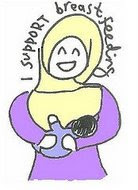In a hut made of tin and clay
A small boy dreams away
Of clean water and a meal a day
And not to fear mines as he plays each day
O people

Somewhere dark and out of the way
Aids has found yet another prey
To save his life he just couldn't pay

Tell me what we're going to do
For our brothers in Durban
For our sisters in Darfur
Show me what we're going to do
Are we just going to sit there?
Nice and cosy on our armchairs
Will we not even make a prayer?
You might ask yourself
Why should I help these people?
They'll tell you why
We're not so different from you
We have dreams just like you
But they were buried with the bodies of our loved ones
O people
Are we deaf, dumb, and blind?
What is going through our minds?
Don't we care for the rest of mankind?
O people
We claim to love peace and justice
Why do we preach what we don't practice?
Let's help them out of this darkness
Tell me what we're going to do
For our brothers in Ethiopia
For our sisters in Rwanda,
oooh Show me what we're going to do
Are we just going to sit there?
Nice and cosy on our armchairs
Will we not even make a prayer?
Will we not even make prayer?
Will we not even make prayer...
by Sami Yusuf

![[Image]](http://www.albalagh.net/_images/time.jpg)

























